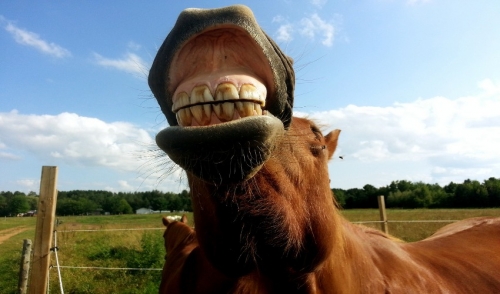Treating Seasonal Hot Spots on Pets
Hot spots can be uncomfortable for your pet, but how can you treat this itchy irritation? Understanding more about hot spots can help you give your pet relief...

A horse's teeth change throughout its life and proper dental care is essential for your horse to be comfortable feeding, grazing and carrying a bit. But what types of problems can develop, and how should they be taken care of?
Does Your Horse Have Tooth Problems?
A horse has from 36-44 teeth, and those teeth wear down as the horse grazes and eats. Because our horses have different diets that are often softer than the fodder their wild ancestors and cousins consume, however, the wear on their teeth may be uneven or slow, and different dental problems can occur. Your horse can't tell you a tooth hurts, however, and you have to be on the lookout for unusual symptoms that can indicate dental trouble, such as…
When a horse shows one or more of these symptoms, it may be necessary to consult a veterinarian or equine dentist for a proper diagnosis and treatment. The faster any dental problems are treated, the healthier your horse will be.
Equine Dental Problems
Horses can develop a range of unique problems with their teeth. Some of the more common ailments include…
In addition to these typical problems, horses can also develop many other dental problems familiar to humans, such as plaque or tartar buildup, gingivitis, gum and periodontal disease, cracked teeth, abscesses and more. Being familiar with your horse's teeth and inspecting them periodically can help you discover any problems quickly, before they dramatically affect your horse's health. With the proper dental care, your horse will have strong, healthy teeth, and that's always worth smiling about.
We are constantly adding new specials to our site. Be sure to check back often!


Hot spots can be uncomfortable for your pet, but how can you treat this itchy irritation? Understanding more about hot spots can help you give your pet relief...
Comments